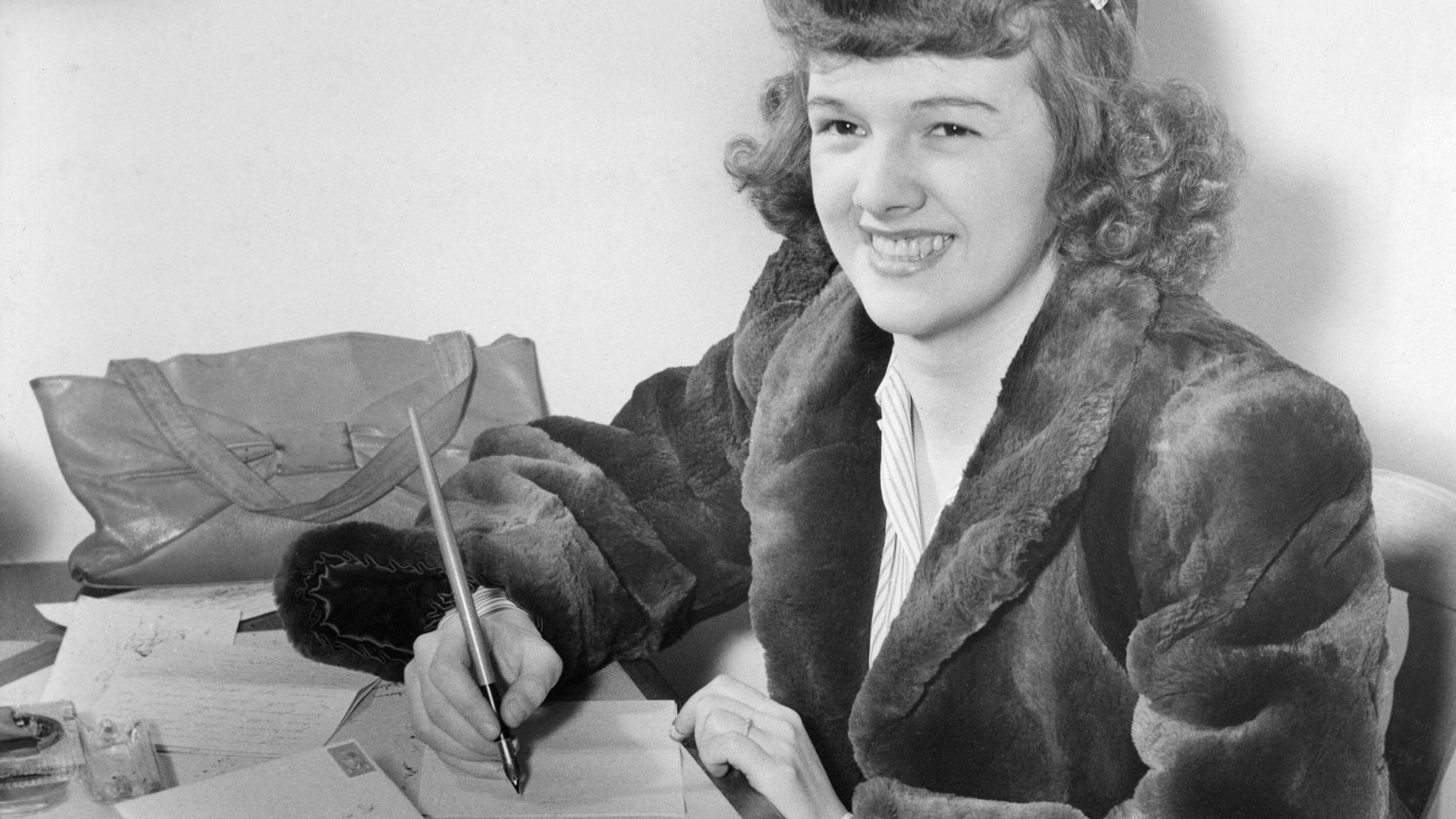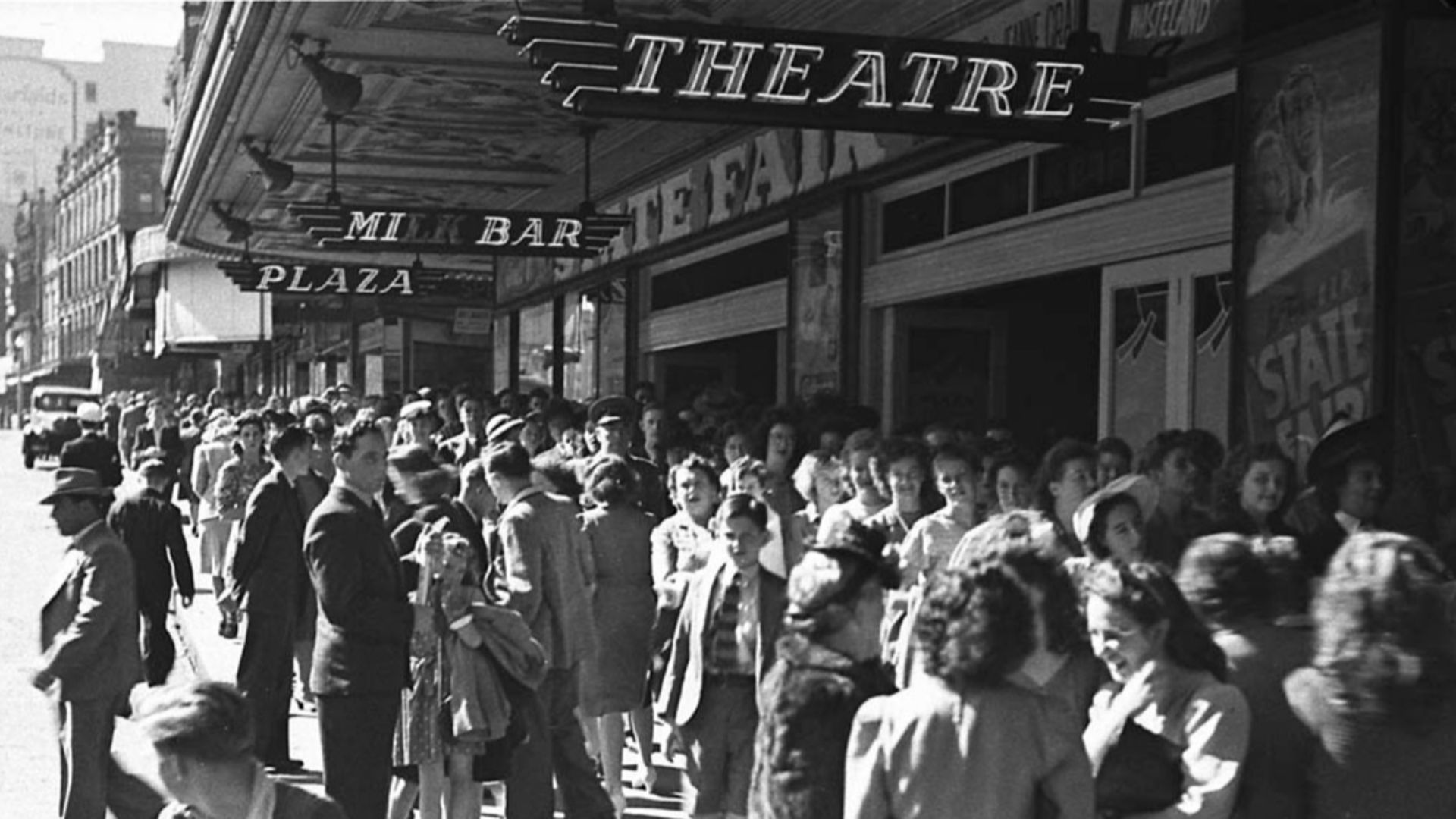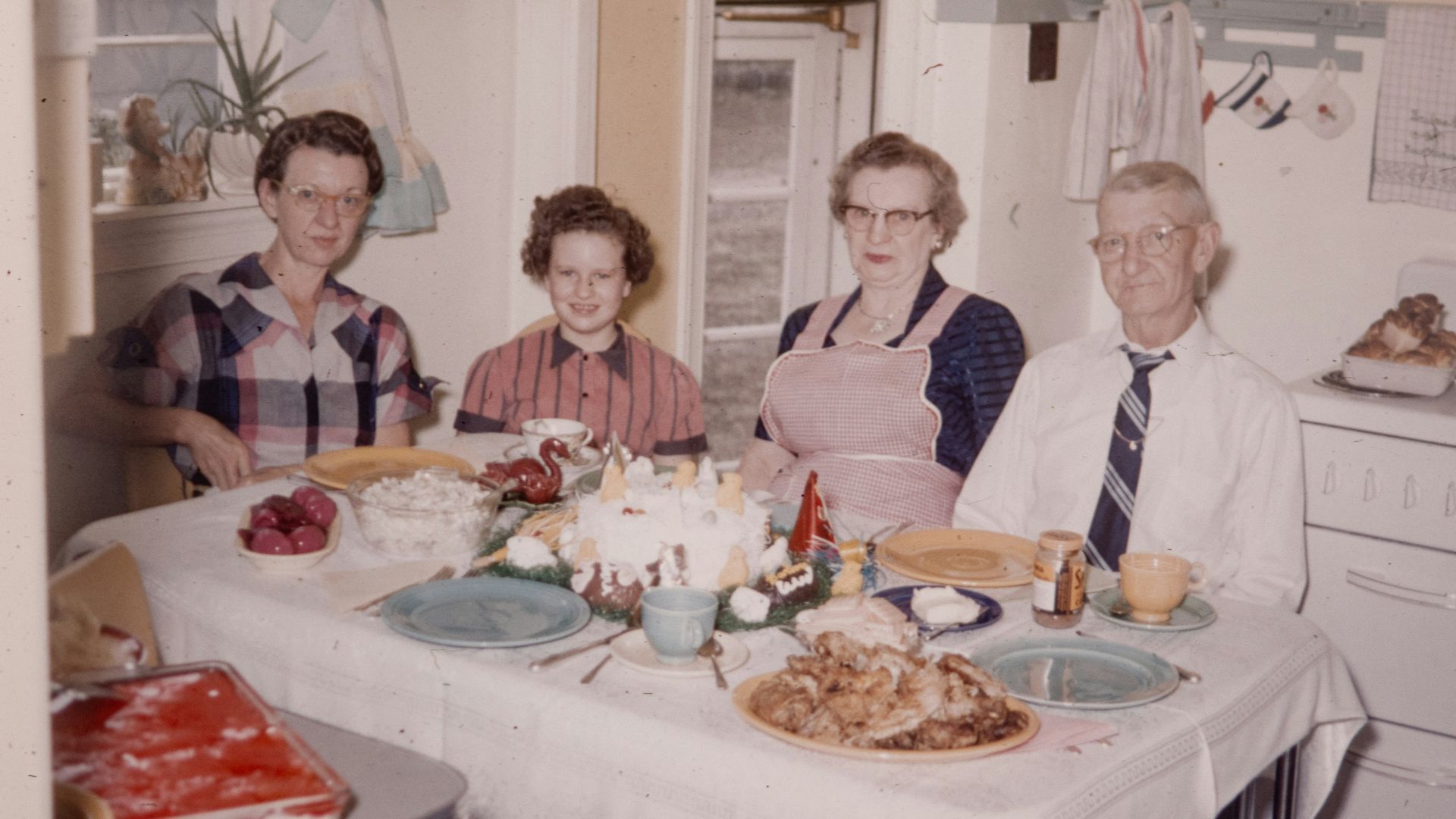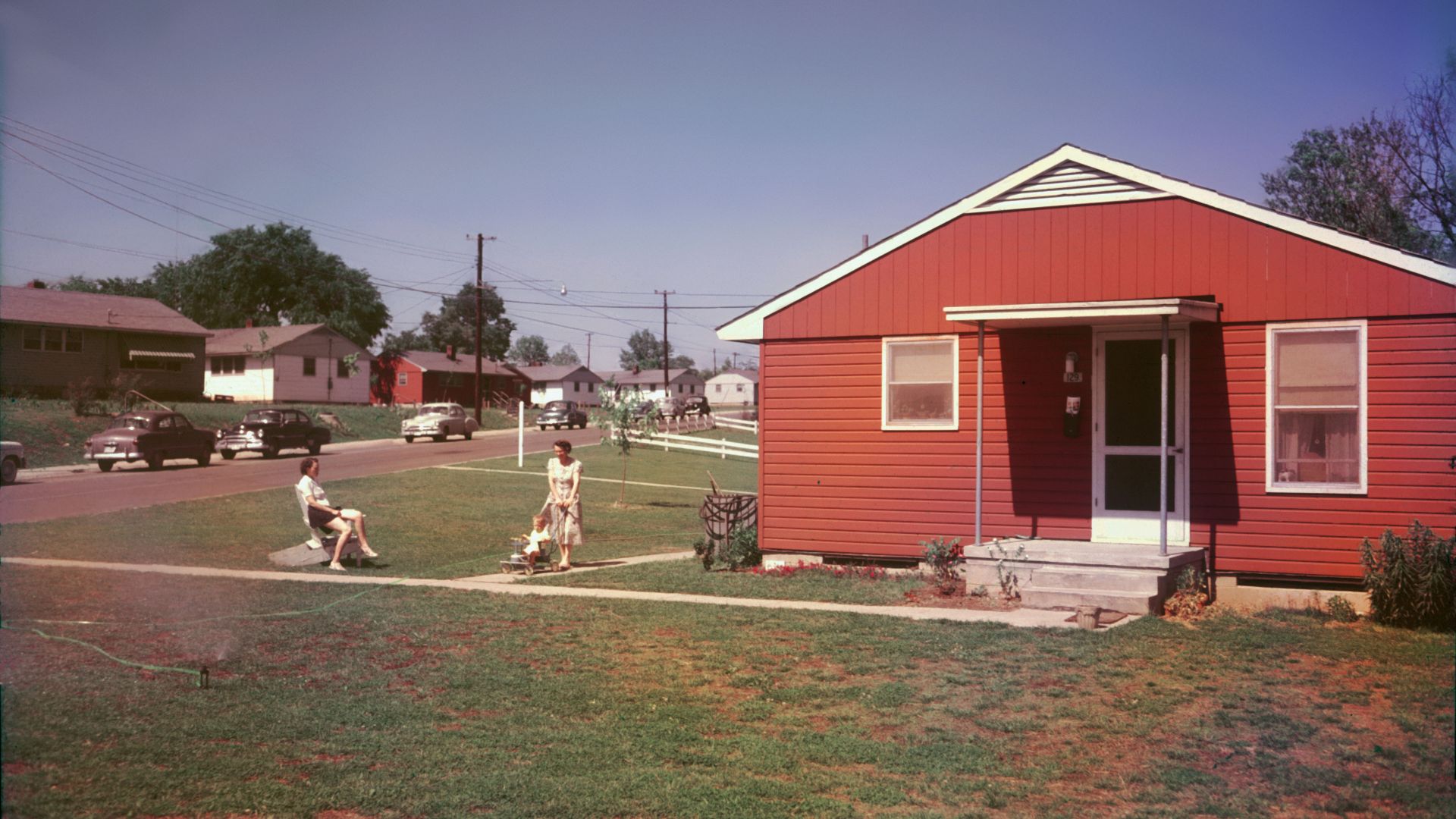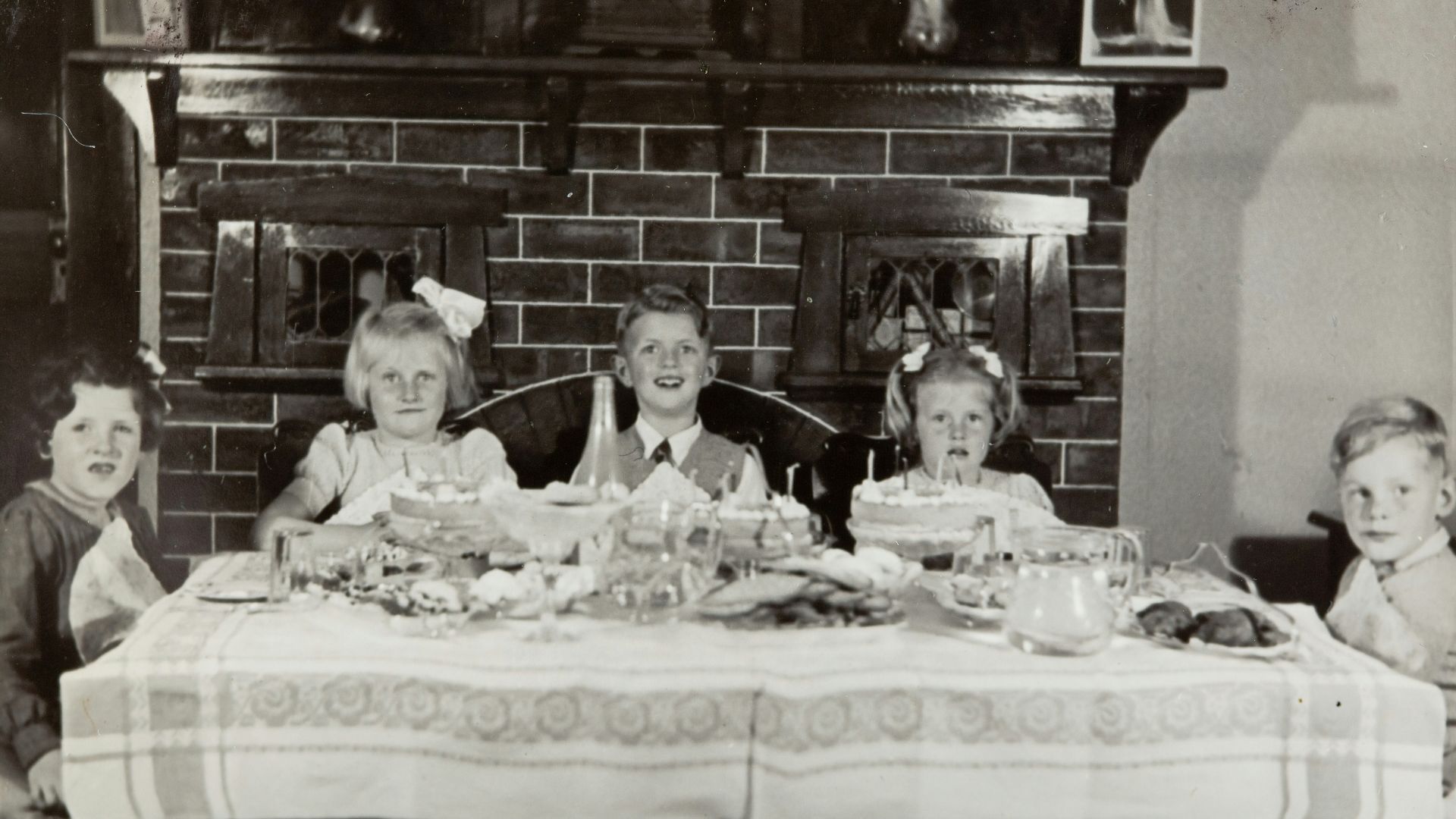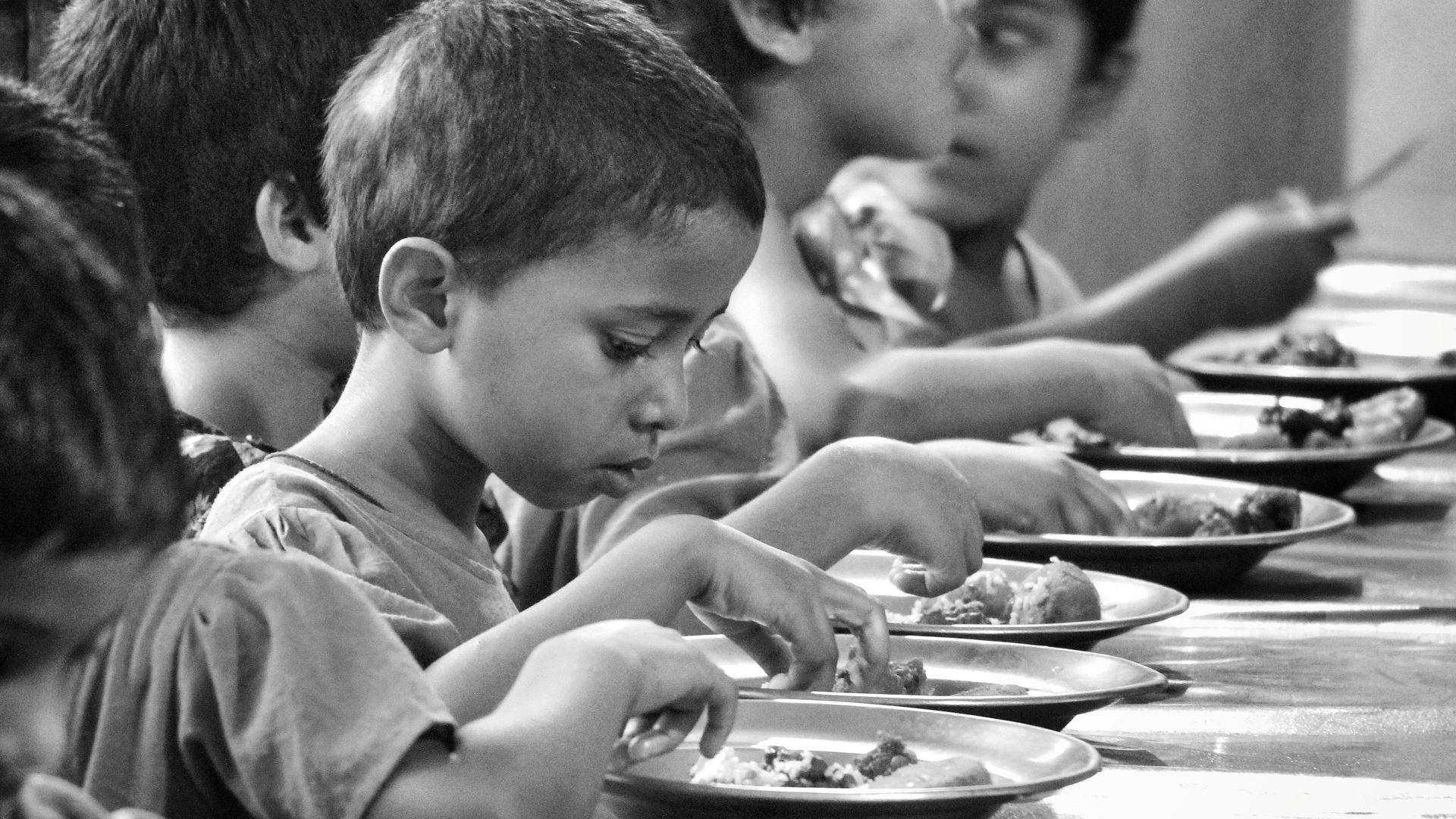Parenting Was Very Different
Gentle parenting! What is that? Anyone who grew up during the 50s would likely laugh at the idea because childhood was a different experience back then. The rules? Let’s take a look, starting with the golden phone call rule that….
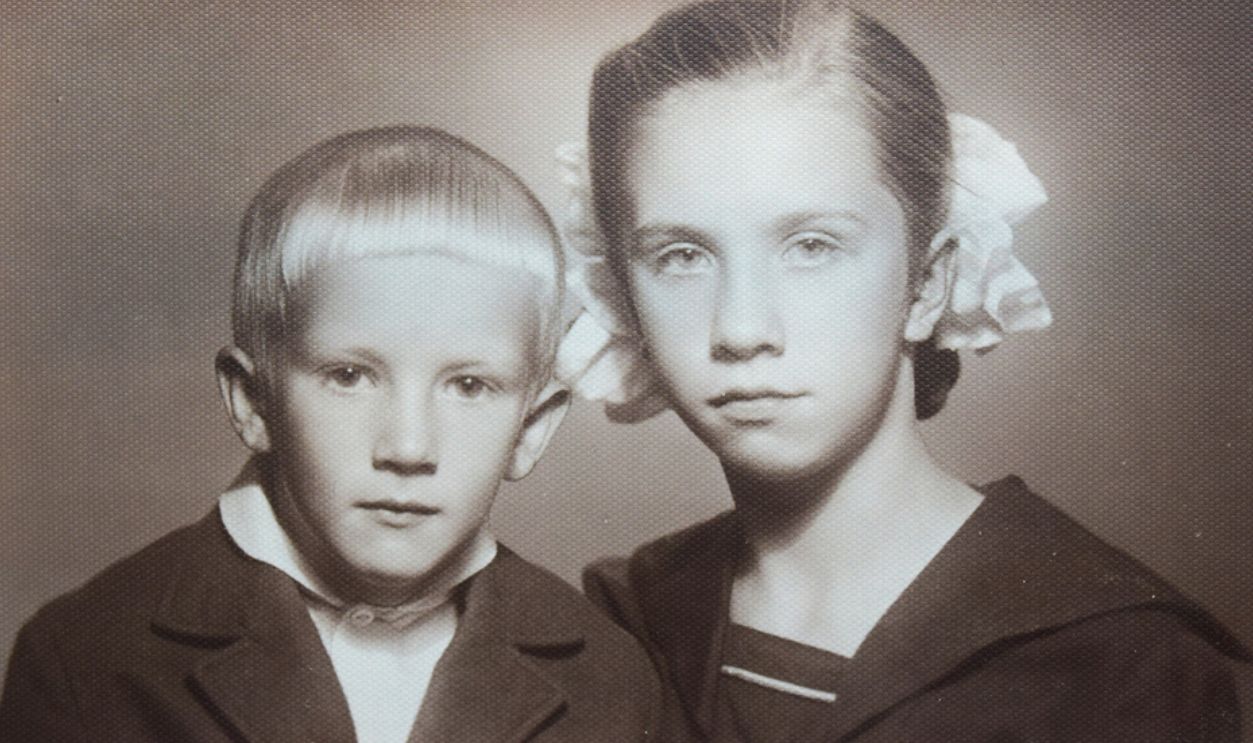
You Could Not Make Personal Phone Calls For Long Periods
Talking on the phone was a privilege. Parents often monitored calls, cutting them short to keep the line free. In households with a single rotary phone, hogging the line was unacceptable. Teens had to strategize and time their conversations ideally before hearing the dreaded “Time’s up!” from a parent.
You Could Not Ride In A Car Alone With Someone Of The Opposite Gender
Dating had strict guidelines, and solo car rides with the opposite gender were practically scandalous. Parents feared impropriety and unwanted gossip. Many families enforced chaperones to ensure young couples had a third party to keep things “respectable”. Romance required patience and an acceptance of heavily monitored interactions.
You Were Expected To Write Letters Instead Of Making Casual Phone Calls
Long-distance friendships and romances depended on ink and paper. Teens spent hours crafting handwritten letters with perfect cursive and waiting days—sometimes weeks—for a response. Impulsive chats weren’t an option. Every word had weight. Postage costs and slow delivery made communication a lesson in patience.
You Were Not Allowed To Eat In Public While Walking
Snacking on the go? Not a chance. Eating in public while walking was considered rude and uncivilized. Meals were meant to be enjoyed sitting down, with proper table manners. Street food culture was practically nonexistent, and eating anywhere other than a dining table drew disapproving stares from adults.
You Were Expected To Give Up Your Seat For An Adult
If a teenager was sitting and an adult entered, they would stand up and offer them the seat. This unwritten rule was a sign of a good upbringing. Failing to do so risked being called out—sometimes publicly—by nearby adults who expected better behavior.
You Could Not Go To The Movies Without Adult Permission
Censorship and parental control were strict, even for harmless entertainment. Many parents reviewed movie listings before granting permission. Teenagers had to prove the film was “appropriate”. Sneaking into a forbidden screening was a thrilling but risky move, with punishments ranging from grounding to a complete ban on future outings.
You Were Expected To Greet Every Adult You Passed On The Street
Walking past an adult without acknowledging them was considered disrespectful. A proper greeting—be it “Good morning” or a polite nod—was expected. This practice reinforced community bonds and ensured young people understood their place in a structured, respectful society. Nowadays, casual greetings have dwindled.
You Were Not Allowed To Question Your Parents’s Decisions
Suppose parents set a rule that was the end of the discussion. “Because I said so” was a typical response to any protest. Even minor backtalk could result in serious consequences, from a stern lecture to grounding. Obedience was expected, not negotiated.

History's most fascinating stories and darkest secrets, delivered to your inbox daily.
You Were Expected To Memorize And Recite Polite Phrases
“Please,” “Thank you,” and “Yes, ma’am” weren’t suggestions. Parents drilled polite speech into their children from an early age. Forgetting to say “excuse me” after interrupting was met with immediate correction. Good manners were essential, reflecting a family’s reputation and proper upbringing. While still valued, casualty wins today.
 M Alfan Setyawan, Shutterstock
M Alfan Setyawan, Shutterstock
You Could Not Wear Bright Nail Polish Or Bold Styles Without Criticism
Your expression had limits because conservative grooming was the standard, especially for teenage girls. Flashy nail polish, short skirts, showing skin, and wearing bold hairstyles drew disapproving looks and, in some cases, school or parental discipline. Conformity was key, and standing out too much could invite social backlash.
You Were Not Permitted To Wear Casual Attire Like Jeans in Public Settings
Jeans were strictly workwear in the 1950s, unsuitable for social events or public appearances. Schools, restaurants, and theaters often refused entry to those wearing denim. Teens who dared to break this rule risked being sent home or reprimanded for dressing inappropriately. Today, jeans have become a fashion staple.
 Supavadee butradee, Shutterstock
Supavadee butradee, Shutterstock
You Could Not Engage In Public Displays Of Affection
Holding hands, hugging, or kissing in public was deemed inappropriate and even scandalous. Many schools enforced strict rules against PDAs, and couples risked social scorn if caught being affectionate outside the home. Today, public displays of affection are widely accepted in most cultures, though several still frown upon it.
You Were Expected To Stand When An Adult Entered the Room
Respect for elders was paramount, even beyond the giving of seats. One was mandated to stand upon an elder’s arrival. Failing to do so could be seen as disrespectful or a sign of poor upbringing. Schools, churches, communities, and most homes upheld this expectation.
You Were Not Allowed To Use Slang In Formal Conversations
Using slang, especially in front of adults or authority figures, was a no. Teachers and parents corrected informal speech, ensuring young people spoke properly. While professional settings still require polished speech, casual conversations today have allowed for greater linguistic flexibility.
You Were Expected To Adhere To Strict Gender Roles
Back then, boys prepared for careers; girls learned domestic skills. Deviating from these expectations was frowned upon, and stepping outside traditional roles could lead to criticism or social isolation. Modern society promotes gender equality, though remnants of these old norms persist.
You Could Not Date Without Parental Supervision
Teenagers rarely went on dates or even hung out without adult oversight. Group outings or chaperoned dates were the norm. Unsupervised dates were seen as risky and inappropriate. The dating culture has changed dramatically, with teens now enjoying more independence. However, parental involvement remains important in guiding healthy relationships.
You Were Expected To Maintain A Conservative Appearance
Bright and unconventional fashion choices were discouraged because parents saw a conservative appearance as a signal of good morals. Things have really changed, and personal expression through fashion is now widely embraced. While dress codes still exist in specific spaces, individuality in appearance is celebrated rather than suppressed.
 LightField Studios, Shutterstock
LightField Studios, Shutterstock
You Were Not Permitted To Listen To Certain Music Genres
Anything with profanity was a no-no. For example, rock and roll was seen as rebellious, even dangerous. Hip hop? Let’s not even go there. Many parents and schools restricted access, fearing its influence on youth. Currently, music censorship is rare, and once-controversial genres are mainstream.
You Were Expected To Prioritize Family Responsibilities Over Personal Interests
If you wanted to go to piano classes, the questions before you left would have been if you had done your chores. This is because household chores and family obligations took precedence over hobbies and leisure time. Disobedience could result in discipline or loss of privileges.
 Everett Collection, Shutterstock
Everett Collection, Shutterstock
You Could Not Speak Back To Adults
Talking back was seen as blatant disrespect. Even questioning authority could lead to punishment, often swift and severe. Now, open dialogue between generations is encouraged. While respect is still valued, children and teens have more freedom to express opinions without immediate reprimand.
 Krakenimages.com, Shutterstock
Krakenimages.com, Shutterstock
You Were Expected To Dress Formally For Church Services
Church attire had strict guidelines—dresses for girls, suits for boys. Casual clothing was unacceptable. While many still dress up for religious services, standards have relaxed. Today’s churchgoers prioritize comfort over strict formalwear, reflecting a broader cultural shift in dress norms.
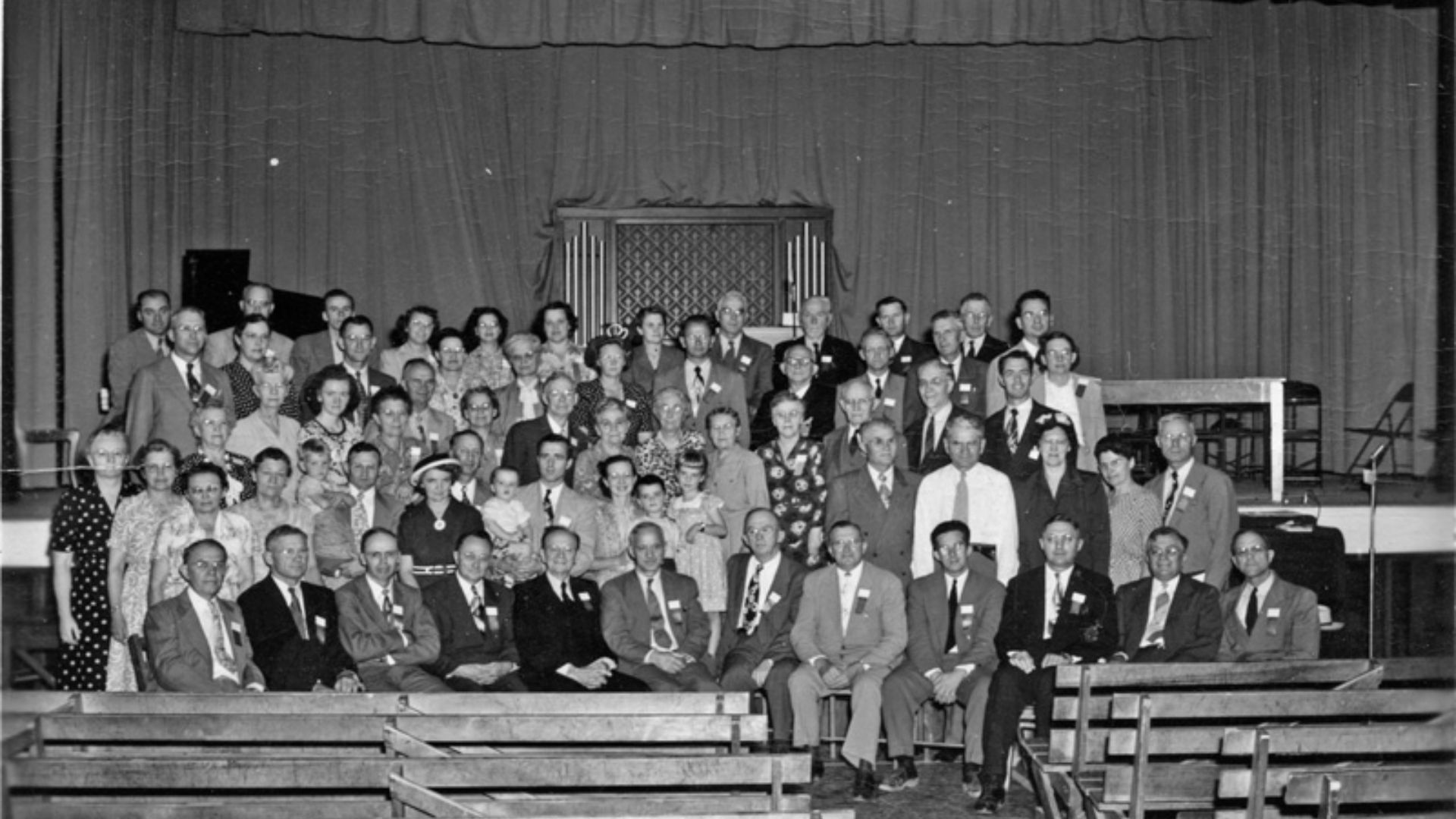 Mennonite Church USA Archives on Wikimedia
Mennonite Church USA Archives on Wikimedia
You Were Not Allowed To Attend Mixed-Gender Parties Unsupervised
Mixed-gender parties are now standard but were not particularly preferred. If you lived under the same roof as your parents in the 50s, be sure that all teen gatherings you attended were all-girls or all-boys, and those also had to have at least a parent watching (and listening).
You Were Expected To Use Formal Titles When Addressing Adults
Using “Mr,” “Mrs,” or “Miss” was mandatory. Calling an adult by their first name was unacceptable. Years would pass, and you’d never know your mailman was called Nelson because he was always Mr Smith. Though formal titles remain in professional and respectful settings, informality is more accepted today.
You Were Expected To Follow A Strict Curfew
Parents enforced early curfews to ensure teenagers were home by a set time. Disobedience resulted in grounding or other punishments. Curfews still exist, but they tend to be more flexible. Parents now balance safety with trust, giving teenagers more autonomy in managing their time.
You Were Not Permitted To Discuss Topics Like Politics Or Religion Openly
Such conversations were considered inappropriate, particularly among young people, as they were deemed too controversial. They would perceive you as too young to understand. That has changed today; open discussions are common and even encouraged. Society has moved towards valuing diverse perspectives rather than avoiding complex topics.
You Were Expected To Eat Meals Together As A Family
Family dinners were a daily ritual, fostering unity and communication. Modern lifestyles make sit-down meals less frequent, but many families still value shared meals. The emphasis on quality time remains strong, even if traditions have evolved.
You Could Not Leave The House Without Informing Your Parents
You left for a walk; you say so. You went bask in the neighbor’s yard; you let someone know, too. Strict household rules require teens to disclose their whereabouts at all times. While parents still expect updates, technology makes communication and tracking easier.
You Were Expected To Display Table Manners During Meals
Proper etiquette was enforced at every meal, from napkin placement to chewing quietly. This is not to say that manners don’t matter today, but strict rules have softened. Today, etiquette is about consideration rather than rigid formality, making meals more relaxed and enjoyable.
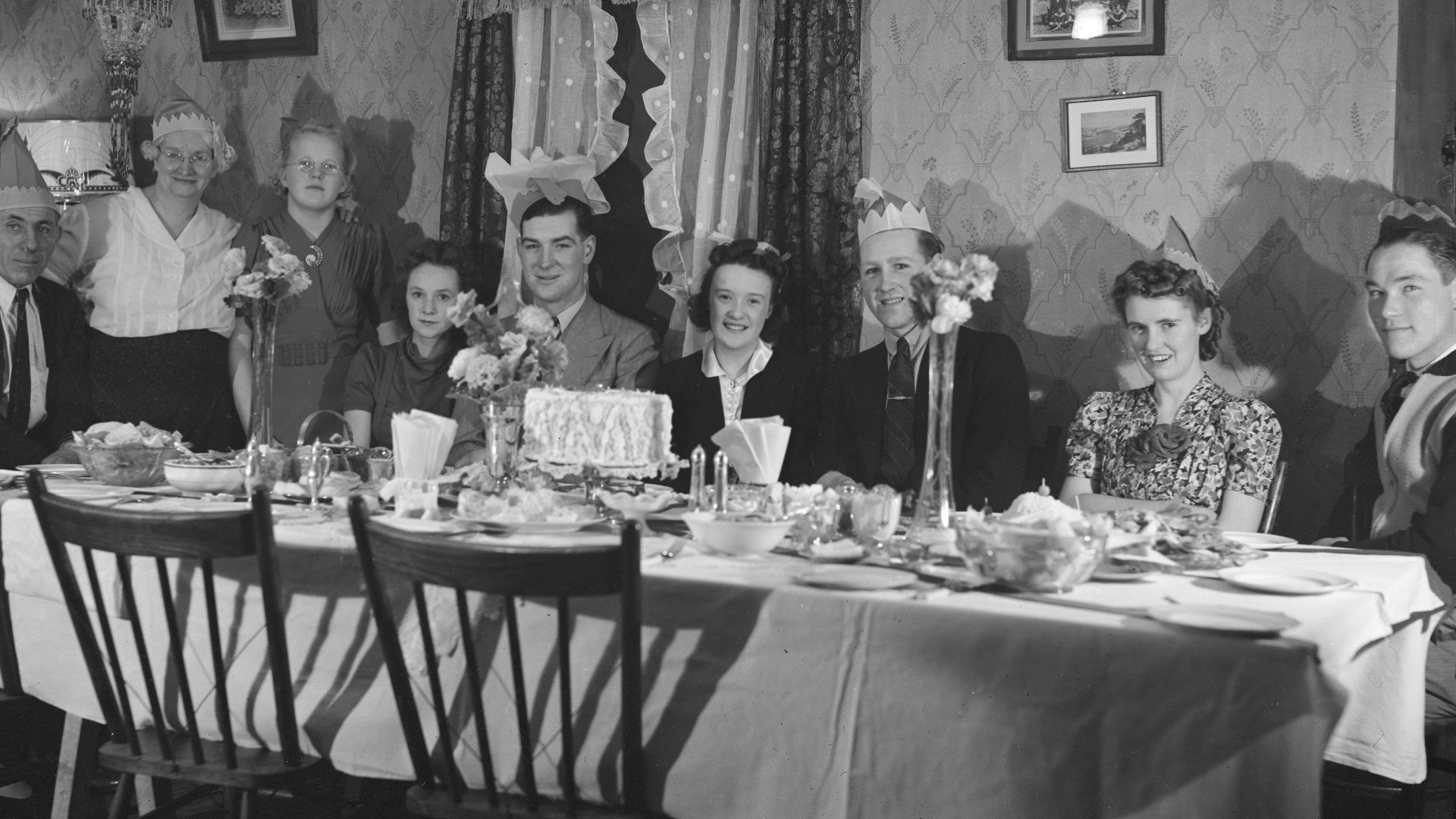 Provincial Archives of Alberta on Wikimedia
Provincial Archives of Alberta on Wikimedia
You Were Not Permitted To Chew Gum in School
Chewing gum in school was considered disrespectful. Many teachers enforced strict no-gum policies, and students caught chewing often faced detention. Some schools went as far as banning gum entirely to maintain discipline and order in the classroom. Gum chewing is now familiar, and some recognize its concentration benefits.
You Could Not Leave The Dinner Table Without Permission
You are full, but everyone else is still eating. Do you just leave or ask for permission? The latter wins. Family dinners were formal affairs, and leaving the table before being excused was a serious offense. You were expected to remain seated and express gratitude before asking to be excused.

You Could Not Watch TV Until Homework Was Done
Television was a privilege that you could only enjoy after work was done. Parents strictly enforced that schoolwork came first, and failing grades often meant no TV. With only a few channels and limited programming, entertainment options were far from endless.
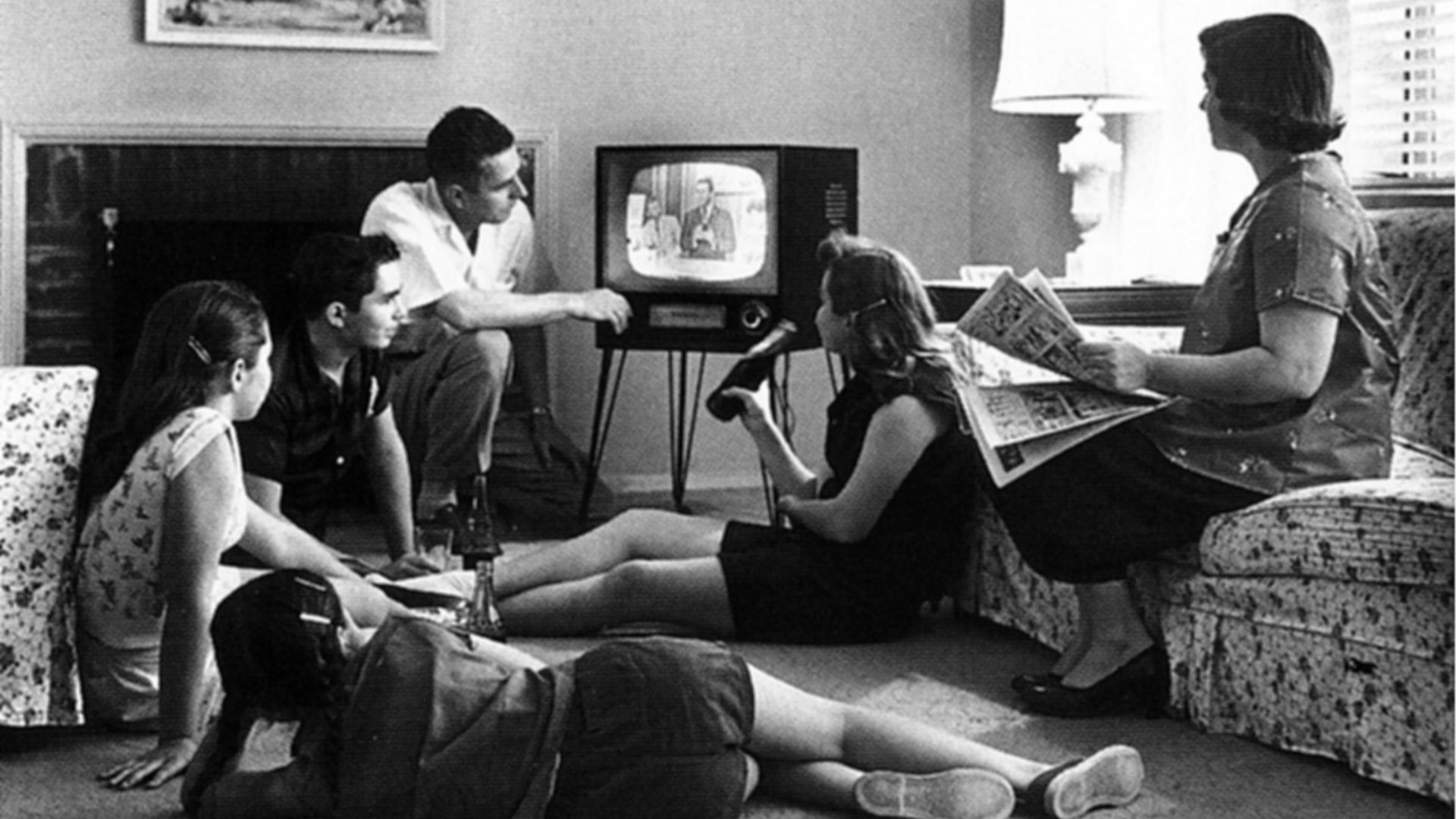 Evert F. Baumgardner on Wikimedia
Evert F. Baumgardner on Wikimedia
You Were Expected To Answer The Phone Formally
Picking up the phone with a casual “Hello?” wouldn’t fly. Proper etiquette required answering with a polite “Smith residence, John speaking,” or “Rita speaking on behalf of Kelvin, how can I help?” Sloppy phone manners could embarrass the entire family (or business).
 Everett Collection, Shutterstock
Everett Collection, Shutterstock
You Could Not Enter Someone’s Home Without An Invitation
Unlike today’s spontaneous plans and text culture, social visits require advanced planning. Dropping unannounced was considered rude because the host had to approve your arrival and their availability. Even friends needed an official invitation before visiting.
You Were Expected To Hold The Door Open For Others
Chivalry was encouraged—and was demanded. Boys were primarily taught to open doors for girls and elders. Failing to do so could earn a scolding from any nearby adult. But admit it, it was and still is a noble thing to do regardless of gender.
You Could Not Leave Lights On Unnecessarily
Leaving a light on in an empty room was considered wasteful and irresponsible. And so was leaving a socket on. Parents kept a close eye on utility bills, and wasting power meant a stern lecture or denying the usage of electronics in the home like the TV.
You Were Expected To Walk Or Cycle To School If It Was Within A Certain Distance
If your school was within a few miles, you walked or cycled—rain or shine. Parents saw no reason to drive children short distances. School buses and car rides are the norm today, making life much easier. But it is still recommended if it’s a walking distance.
You Could Not Speak At The Dinner Table Unless Spoken To
This one didn’t make sense, but it still happened. Mealtime was for eating, not chatting and yapping freely. Children were expected to listen to adults and only speak when addressed. Now, family dinners are often lively discussions where kids can openly share their thoughts and problems.
You Were Expected To Know How To Sew Or Mend Clothes
Buying new clothes for every small rip or missing button that could be fixed was unheard of. Girls were primarily taught to sew, and boys often learned basic home repairs. Fast fashion, online shopping, and the availability of more affordable services have made clothing much more disposable and self-fixes less.
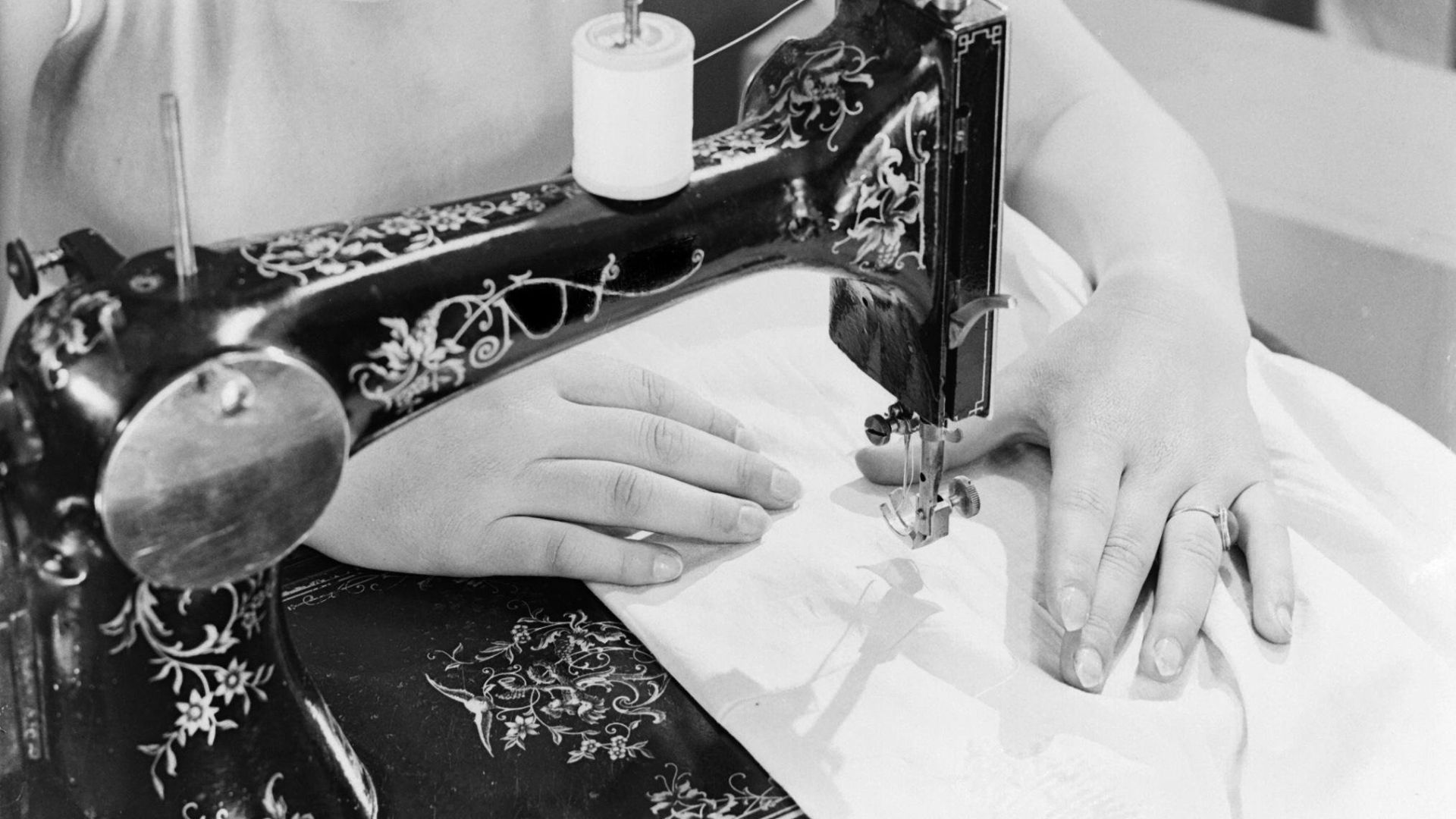 Willem van de Poll on Wikimedia
Willem van de Poll on Wikimedia
You Could Not Play Indoors If The Weather Were Nice
When the sun is out, you also have to be out. Fresh air was considered essential for good health. For this reason, kids were expected to be outside—no exceptions. Today, video games, streaming, and air conditioning make staying indoors far more tempting but unhealthy.
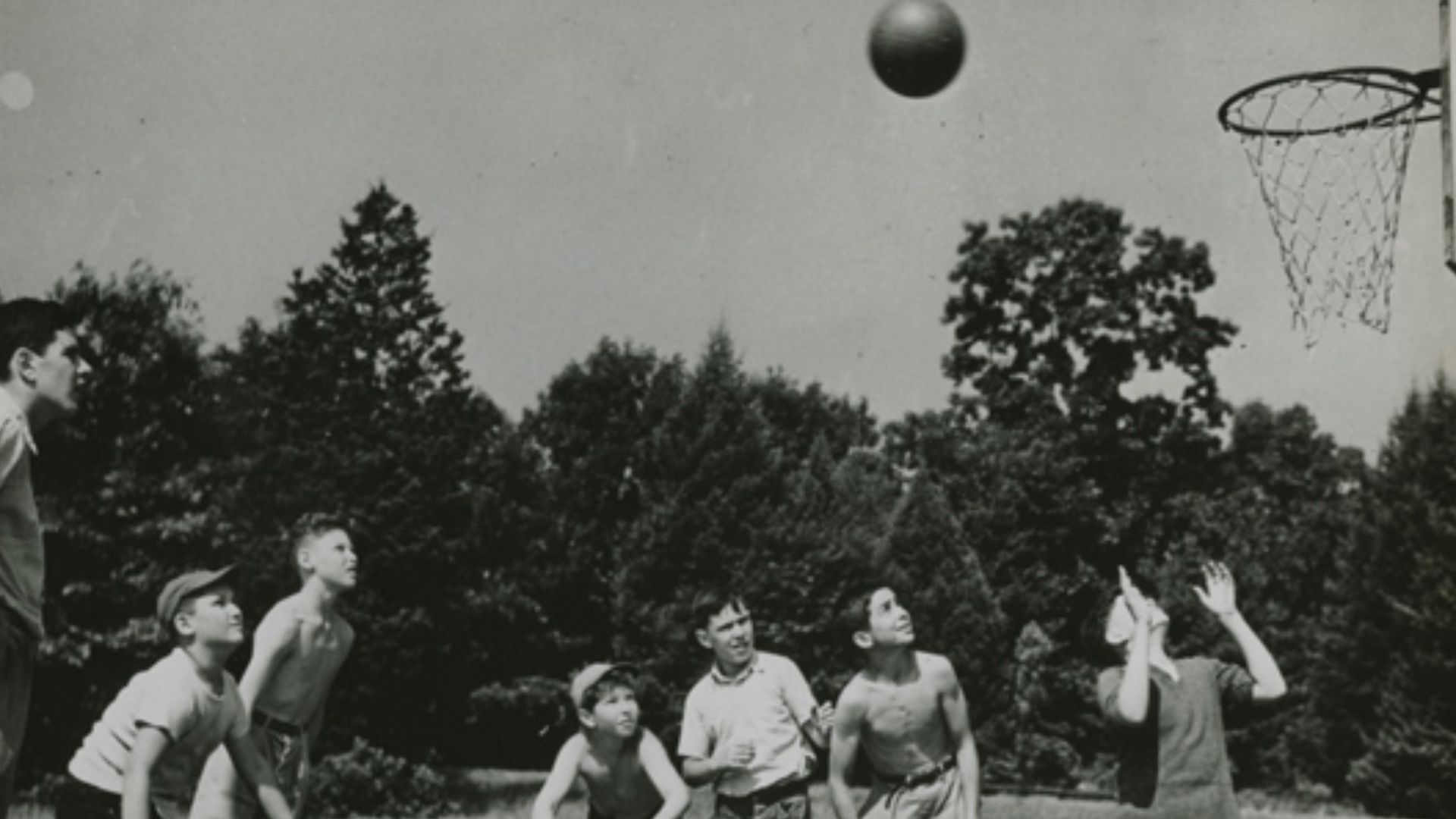 Center for Jewish History, NYC on Wikimedia
Center for Jewish History, NYC on Wikimedia
You Could Not Go To Bed Without Saying Goodnight To Your Parents
Skipping a formal goodnight was considered disrespectful and unheard of in most households. Children were expected to acknowledge their parents before bed by telling them to have a good night. Now, many families have a more relaxed approach to bedtime routines.
You Were Expected To Address Mail Correctly And Neatly
Messy handwriting on an envelope? Nope. Writing without a format? Nope. That was unacceptable. Letter writing was taken seriously, and adequately addressing and formatting mail was an essential life skill. Today, email and text messaging have made this skill nearly obsolete. Many have no idea where the sender’s address goes.
You Were Expected To Help Younger Siblings Without Complaint
Older siblings had clear responsibilities to help in the home. They would help with babysitting, chores, and homework. Complaining about it wasn’t an option. While sibling responsibilities still exist today, they are often more balanced with personal time. You help where you can according to how you and your child agree.
You Could Not Waste Food Under Any Circumstances
Finishing every bite on your plate was expected, and wasting food was practically a sin. Many parents enforced the “clean plate club” rule, reminding kids about starving children in other parts of the world. Now, portion sizes and food preferences are often more flexible.
You Could Not Wear Shorts In Most Public Settings
Shorts were primarily for children or athletic activities, not everyday wear. Teenagers and adults were expected to wear long pants or skirts in public, regardless of the weather. Nowadays, shorts are a staple of casual fashion, worn everywhere, from grocery stores to business-casual offices.




